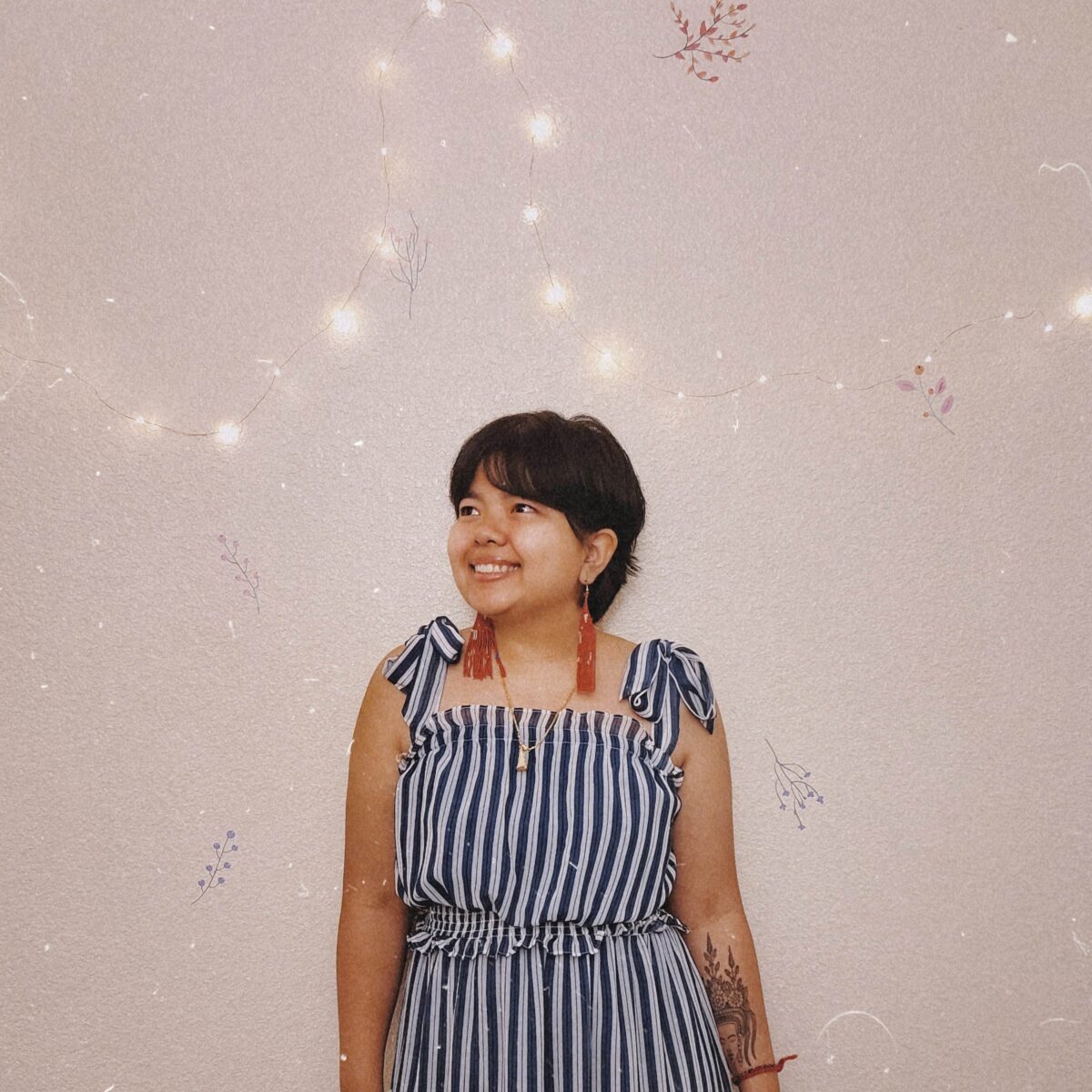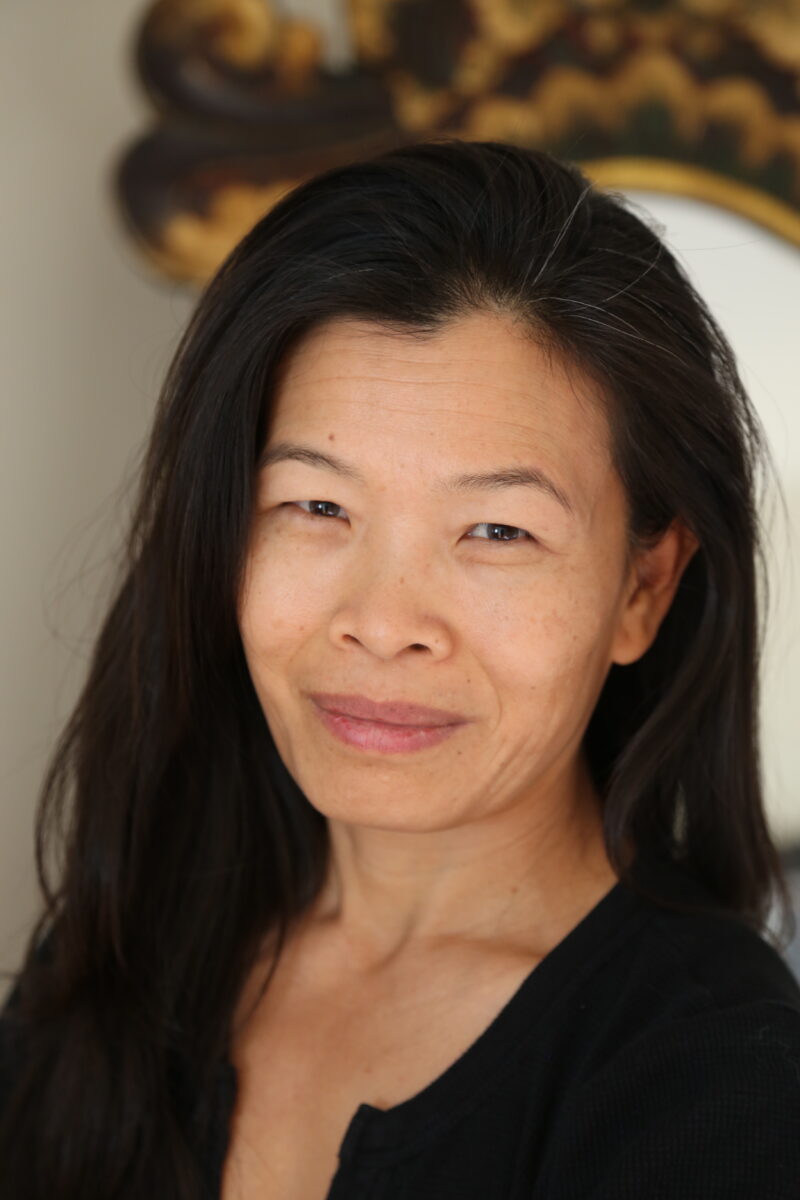For this sixty-first post in the Poets on Craft series, we have Krystal M. Chuon and Sokunthea Oum.
Poets on Craft is a cyberspace for contemporary poets to share their thoughts and ideas on the process of poetry and for students to discover new ways of approaching the writing of poetry. In the face of a pandemic that is both viral and political, it is a resource for strength and creativity, friendship and beauty, love and rejuvenation. It is thus a celebration of the beautiful and eclectic minds of contemporary poets.
The format is as follows. I emailed poets these questions: “Generally speaking, how do you build a poem? How do you start a poem? How do you move from one line to the next? How do you know when to end a poem?”
With the exception of length requirement, poets are free to respond in whatever manner they find appropriate to their styles and concerns.
Access to Poets on Craft is democratic. Generally speaking, anyone can have free access to these posts. With that said, please consider supporting our poets by clicking on the links in their bios and purchasing their work.
This series is intended for educational purposes only.
Krystal M. Chuon is a 2nd generation Khmer/Krom American writer, artist, and daughter of genocide survivors. She is the author of two self-published chapbooks: Follow the Mekong Home and In the Land of Monsoons. Her work also appears in The Stilt House Zine series published by The Cambodian American Literary Arts Association (CALAA).
My writing often occurs in the moment or after a string of words come together in my head. I’ll think about a memory or image and then find words that can help describe them, eventually forming into a poem. My writing process is quite fluid – I let go of perfection and rigidity for early drafts. I also allow time to pass for certain pieces so that I can return with “fresh eyes” – as they say – and work on revising until they sound “right.”
A few challenges come with having no formal training in writing, such as finding my voice and exploring who I am as a writer. Reading the work of others, especially by Khmer writers, often inspires me and gets me going whenever I’m experiencing writer’s block. The most important thing is to always keep writing, even if it’s bad writing. Bad writing can be revised and if not, it can be let go to make space for new pieces.
When it comes to endings, it’s either a struggle or it comes easily. Reading out loud helps with hearing the flow of my works, from where the reader should focus to where they should take a pause. It all comes down to feeling and sometimes, I may find that a concrete resolution is not needed.
Sokunthea Oum, aka “Tia,” is a Khmer-American yoga teacher, a life-long Budo student, and poet. As a survivor of the Khmer Rouge genocide, her life mission is to share her experience and learning. Being able to tell one’s intimate story is one of the bravest realizations and acceptances of one’s innate self. To learn about Tia’s yoga teaching, please click here.
I see the writing of poems as an outpouring of my senses. It’s an observation, a declaration, a storytelling, a snapshot of a particular intimate moment in life that needed to be expressed. One can say it’s a haunting of the felt sense asking to be heard. Writing it down for me is an act of listening to myself. In doing so, because it’s mine, I’m not necessarily asking for readers to understand the piece, rather a beckoning for readers to connect to one’s own felt sense also. What is YOUR experience from reading that piece? What does it conjure? Pay attention to your thoughts and emotions arising from it. I see it as a mirror for readers to reflect beyond the “like”/ “dislike” dichotomy. In doing so, the readers are meditating.
I became more expressive and prolific through meditation several years ago. The subtle messages from physical bodily sensations, emotions, and memory are stronger, beckoning me to attend to them. One can say it’s a journey to what arises from within. Writing allows me to feel OK to say what needs to be said. I become a witness to events that happened in my life. In doing so, what happened in the past does not own me. I’m beyond those experiences. At times, these moments could be a recurrence from traumatic experience in which the emotions have not been expressed thoroughly. Other times, it’s just being in the presence of the simplicity yet paradoxically complex beauty of nature, such as being in delight while watching autumn leaves dancing with the wind.
I find myself thinking visually, so my poems are image based. It’s like a painting that I couldn’t render with a brush. No camera could truly capture it either. The sense is fleeting. When driving on a road or cooking in my kitchen, I could not write down this felt sense. I tried dictating but it’s not the same. I couldn’t pull it out or put it together by the end of the day. Poof, that felt sense is no longer the same, because that moment has gone by. So be in the presence of what arrives organically. Writing poems involves throwing away ideas about rhymes and meter; it involves jotting down words and details that emerge— colors, scent, image, and shape that touch the senses which are embedded viscerally. Be imperfectly perfect with it.
I was a quiet child. An older childhood friend recently mentioned that he thought I was a mute. Perhaps having experienced the Khmer Rouge and brought up in a culture where young women are expected to be demure are suffocating factors. Whether you are quiet in class or shy around the crowd, there is a colorful vibrant person in each one of us. Expressing through poetry, painting, or other creative means are ways to be heard and understood. There is a fantastic Being within all of us. You are your own audience first and foremost.
(Featured image by Alexis Rhone Fancher)


